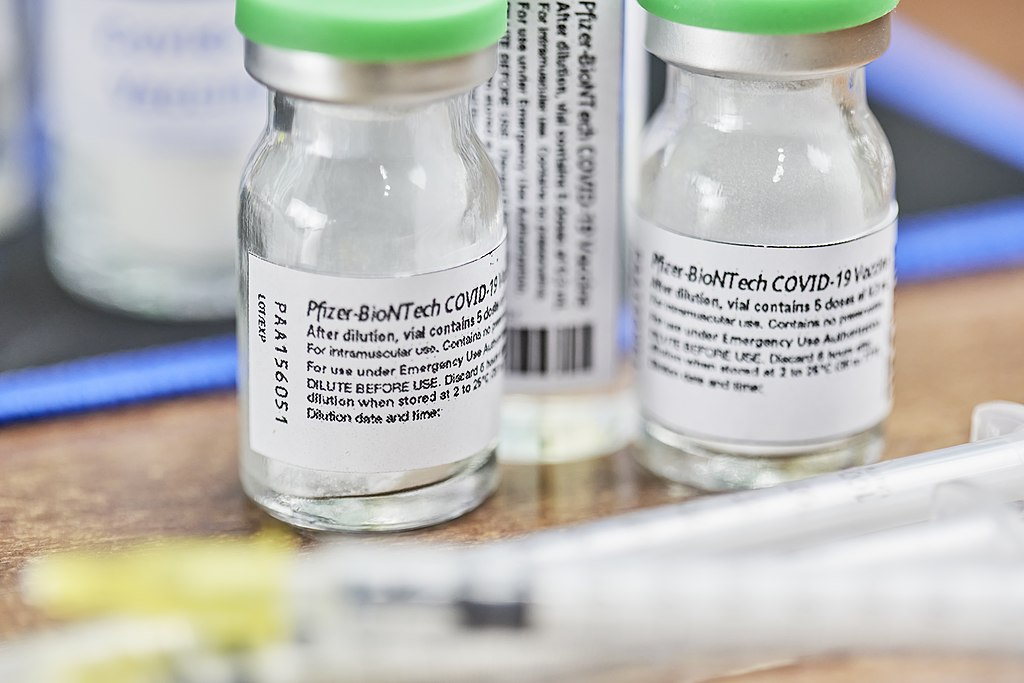➤ Since taking over the US Department of Health and Human Services earlier this year, Robert F. Kennedy Jr. has taken a number of steps that have greatly changed the US government’s approach to vaccines. Many people worry that his actions could make the US less safe from diseases that can be prevented by vaccines.
Since taking over the US Department of Health and Human Services (HHS) earlier this year, Robert F. Kennedy Jr. has taken a number of steps that have greatly changed the US government’s approach to vaccines. Many people worry that his actions could make the US less safe from diseases that can be prevented by vaccines.
A vaccine is a special medicine that trains the human body to fight a disease, without actually having to suffer from the disease first. Scientists work very carefully – with lots and lots of testing – to make sure vaccines are safe and work well.
Experts say that vaccines are one of the most important tools we have to protect against dangerous diseases. Thanks to vaccines, many dangerous diseases that used to be common, such as polio and measles, are now rare. Vaccines have saved millions of lives.
But Mr. Kennedy, who is not a doctor or a scientist, has long been critical of vaccines. He believes that vaccines can cause problems like autism, though many scientific studies have shown that this isn’t true. Since becoming the HHS Secretary, Mr. Kennedy has made many changes to US vaccine programs. Many of these changes go against advice from scientists and make the US vaccination system weaker.
😕
This image has not been loaded because of your cookie choices. To view the content, you can accept 'Non-necessary' cookies.
Since he took over as the leader of the HHS, Mr. Kennedy has taken a number of steps that have greatly changed the US government’s approach to vaccines. Many people worry that his actions could make the US less safe from diseases that can be prevented by vaccines. Above, Mr. Kennedy speaking on June 10.
Mr. Kennedy has cut about $2 billion from programs that help provide vaccines to children. These cuts have forced many local health departments to lay off workers and close clinics. Mr. Kennedy has also fired important people in agencies that work on vaccines and public health, and slowed down research aimed at preventing future disease outbreaks.
On his own, Mr. Kennedy changed the US guidelines that recommended Covid-19 vaccinations for healthy children and pregnant women. Normally, important changes like this would be based on the advice of a group of scientists.
Perhaps most importantly, Mr. Kennedy recently fired all 17 of the doctors and scientists who made up the special group* that makes most of the important decisions about vaccinations in the US. These people had been carefully selected because they had the background and training necessary for the job.
These trained professionals have been replaced with a group of eight people chosen by Mr. Kennedy. Many of the new group members don’t have the same kind of experience as the people Mr. Kennedy removed. Several are even strong critics of vaccines. Mr. Kennedy complained that the old experts had “conflicts of interest“, and suggests that his new members do not.

(Source: Tim Reckmann [CC BY 2.0], via Wikimedia Commons.)
Instead of studying new vaccines, the new group is planning to review accepted and proven vaccines like those for measles and the flu. That could mean that Mr. Kennedy hopes to limit these vaccines as well.
These actions come at a time when the US is dealing with one of its worst outbreaks of measles in over 20 years, and a new Covid variant is spreading.
One big concern is that Mr. Kennedy’s statements and actions could spread confusion, and make people question whether they should get vaccinated. Many people worry that Mr. Kennedy’s leadership could leave the US unprepared to handle outbreaks of diseases that might have been prevented with vaccines.
* This group is known as ACIP, which stands for the CDC’s Advisory Committee on Immunization Practices.

